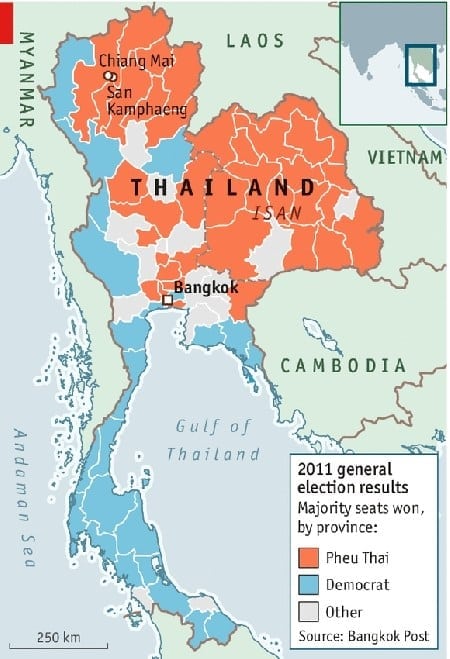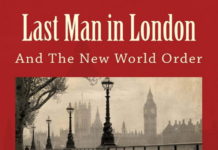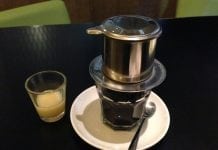Understanding the New Constitution and Thai Politics in Ten-Minutes.
Forty-two political parties in Thailand contested the 2011 General Election. Forty of them were sniffing around hoping to pick up a vote or two in what was thought, at the time, to be an incoming coalition government. Only two of them really matter.
To our left, in the Red corner, we have the Pheu Thai Party, which is the third and latest incarnation of ousted former prime minister Thaksin Shinawatra’s Thai Rak Thai (TRT) Party, which won the 2001 and 2005 elections in landslides.
Pheu Thai represent the workers. Those living in the north and north-east. The farmers. The unskilled and poorly educated. And anybody else who is ‘anti-establishment.’
And over there, way over there, on the Right, we have the Democratic Party. Founded in 1946, at the end of the second world war, it is conservative, pro-establishment and pro-monarchy. It is the party of the Bangkok elite who control all of the wealth and, crucially, is supported by heads of the Thai Military.
Having failed to win the votes of the poor people, which is the majority, the Democrats had also failed to win an election for two-decades prior to 2008. That was the year their army intervened and sent the democratically elected Red Shirts running up the hill.
Shinawatra was chased into exile and, with the party either in disarray or in prison, the democrats, the Yellow Shirts, the party of the army, won the new election and their leader, Abhisit Vejjajiva, became Prime Minister.
A new constitution was drafted, and voted on, and the sun kept rising.
Now, obviously that couldn’t last long. The Red Shirts went bananas. ‘The other side can’t just lose democratic elections for twenty-years and so send in the army to kick out our government,’ they might have cried.
So, after three-years of (sometimes violent) protest and general turmoil new elections were called. By then the Phue Thai had reorganised, or been released from prison. Once again they comfortably won a general election (2011) and Shinawatra’s sister, Yingluck, became Prime Minister. Thaksin himself was still hiding from the army somewhere.
It was another bloody nose delivered by the rice farmers in the north to their ferrari driving, sushi eating, fellow citizens in the south.
This time the Yellow Shirts went bananas. ‘How can you keep winning democratic elections? It’s not fair’ They might have cried.
And so, once again, in May 2014 they sent in their army and chased Pheu Thai back into the hills of the north.
And they don’t want all that happening again.
Which brings us to the 2016 constitution, voted on at the referendum on August 7th. Voted in by 61% of the 54% of people in the country who were eligible to vote – who actually bothered. In other words the winning Yes vote came from 33% of those registered and entitled to vote.
What about the other 46%? Why didn’t they vote?
You will have to ask them that, but it is a fair assumption that many living in the far north are working in the south and didn’t bother making the long journey home to where their vote was registered. They were not allowed to transfer it south, closer to where hundreds of thousands are working. Pattaya, for example.
The Yellow Shirts, the conservatives, were always going to vote Yes for the new constitution. They have had quite enough of the farmers in the north forming governments. That sort of thing has to stop. Nevermind that they make up the majority of the population.
They understood the new constitution meant no more corruption and no more Red Shirt governments unless they were controlled by their army. They didn’t actually read the charter because that’s all they needed to know. Nothing else mattered and it was a nailed on Yes vote for them.
The Red Shirts, on the other hand, would have been the natural No vote. But they were banned from discussing it. Ten-year prison sentences were threatened to those who did. They were banned from holding meetings and very few even got to see the draft charter, let alone wade through its 279 pages. (according to The BBC) So they didn’t read it either. Many of them can’t read.
Some in the rural areas didn’t even know there was a vote on.
To be fair, a new constitution isn’t as big a deal in Thailand as it might be for some people. The American constitution, for example, dates to 1789 and the last minor amendment was in 1991. And research, which is not something I usually bother with, reminds me that it was about something minor, like civil servant salaries.
The British constitution is older than that and can be traced to the Magna Carta in 1215 and the Act of Settlement of 1701.
By contrast, Thailand has had twenty new constitutions since 1932. That’s one every four years, roughly the term of a Government. So it is not such a crisis to the Thai’s and that might also explain the low turnout this time. ‘Who cares, the sun will rise again tomorrow.’
So what have they done to themselves by voting Yes?
Under the new constitution, if a party that comes to power has its own ideas that do not quite satisfy the military-bureaucratic, yellow-shirt establishment, it will now be easy to pull the mat from under both the prime minister and the entire Cabinet.
Parliament will comprise 750 people – 250 Senators in the upper house, who will be essentially appointed by the military, and 500 elected MPs in the lower house. Of the 250 Senate seats, six are reserved for top commanders of the armed forces and the permanent secretary of the ministry of defence.
The Jack Report: Are Days Numbered For The Thai Tourist Industry?
Electing a prime minister would need a majority of 376 votes out of 750. That means if the Senate of self-appointed, unelected, Senators vote together, and it is fair to assume they will, then a person can become prime minister with those 250 Senate votes and just 126 out of 500 elected MPs. In other words appointed and not elected.
Unless a party or coalition of parties can form an unassailable majority, it may not even be able to elect a prime minister of its choice. Given that Thai MP’s never trust and refuse to agree with each other then this is quite likely in the future.
Any prime minister will only function at the pleasure of the military-bureaucratic elites. And the Constitutional Court, in particular, can intervene in undefined ‘crisis’ situations to decide political directions.
It is like the military’s own political party controlling the legislature without having to contest for people’s support.
At the present time all is quiet. The losers, the Red Shirts, have gone off to try to work out what happened and the winners, the Yellow Shirts, are off celebrating. But they don’t really know why or what to expect next.
Nor so do the Red Shirts. Neither do we. But we might find out somewhere down the road when the Thai people realise what they have actually just done to themselves when they find out they cannot really elect their own Prime Ministers anymore. Not until the next constitution anyway.
Or, will the Red Shirts be back, to make their presence felt again, anytime soon? – Albert Jack
–
You can follow Albert on Gab.ai and Minds or Twitter and Facebook.
Or join the free mailing list (top right) and feel free to comment on story below






































